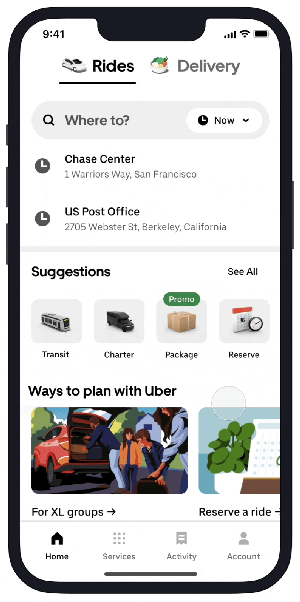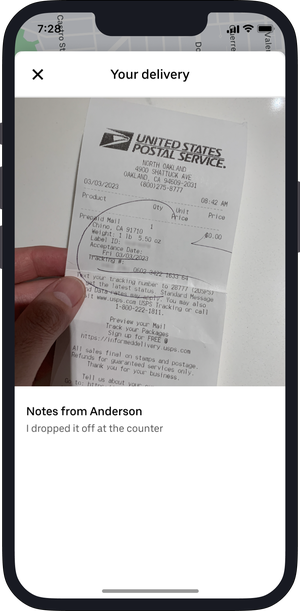New Uber package delivery feature lets you send, return with USPS, UPS or FedEX
Need to return a disappointing online purchase? Uber's newest feature will let you do it without a trip to the post office.
The ride-hailing company on Wednesday launched a new “Return a Package” feature that allows users to send up to five prepaid and sealed packages to a nearby post office, UPS or FedEx for a flat $5 fee, or $3 for Uber One members. The service is available on the Uber and Uber Eats apps in nearly 5,000 cities.
The launch comes as retailers institute more stringent return policies with shorter time frames. With nearly 80% of shoppers under 30 finding mail returns somewhat or very annoying according to a National Retail Federation poll, Uber expects its new tool to be a “huge" value proposition to consumers, according to Wendy Lee, director of delivery product management at Uber.
“We imagine that this is going to be a huge time saver and convenience play for many, many U.S. consumers,” she told USA TODAY.

How do I use "Return a Package” on Uber?
After the user selects a nearby postal carrier and confirms the pickup, Uber will send a courier to their address to pick up a package and drop it off at a local U.S. Postal Service, UPS or FedEx location. Customers can then track their package in real time via the app, and the courier will send a visual confirmation or photo of the receipt after the drop-off.
What sort of packages can I ship through Uber?
The feature can be used to return a package or ship out mail, so long as the package is prepaid with a label or QR code, sealed and ready to ship. Each should be worth less than $100 and under 30 pounds.
The packages will also need to follow Uber’s shipping guidelines, which prohibit packages with alcohol, highly perishable foods, gift cards, fragile items and more.

Where is Uber’s “Return a Package” available?
Markets that offer Uber's "Return a Package" feature include Phoenix and Tucson, Arizona; Atlanta; Baltimore; Boston; Los Angeles, San Diego, San Fransisco, Orange County, Palm Springs, Sacramento and Inland Empire, California; Chicago; Connecticut; Denver; Detroit; Honolulu; Indianapolis; Miami, Fort Myers-Naples, Orlando, Tampa Bay and Jacksonville, Florida; Las Vegas; Milwaukee; Minneapolis and St. Paul, Minnesota; St. Louis and Kansas City, Missouri; New Jersey; New Orleans; the NYC Suburbs and upstate New York; Charlotte and Raleigh-Durham, North Carolina; Cincinnati, Cleveland and Columbus, Ohio; Portland, Oregon; Philadelphia, Pittsburgh and Lehigh Valley, Pennsylvania; Salt Lake City; Seattle; Charleston, South Carolina; Nashville, Tennessee; Dallas, San Antonio, Houston and Austin, Texas; Richmond and Hampton Roads, Virginia; and Washington, D.C.
Disclaimer: The copyright of this article belongs to the original author. Reposting this article is solely for the purpose of information dissemination and does not constitute any investment advice. If there is any infringement, please contact us immediately. We will make corrections or deletions as necessary. Thank you.







